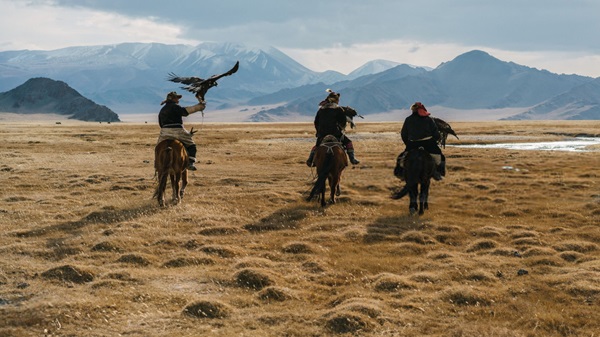
The Government of Mongolia and the United Nations Convention to Combat Desertification (UNCCD) have signed an agreement to host the 17th session of the Convention’s Conference of the Parties (COP17) in Ulaanbaatar in 2026.
COP17 will convene UNCCD’s 197 Parties in this important global forum to accelerate efforts against desertification, land degradation, and drought. Mongolia, one of the countries most affected by desertification – having nearly 77 per cent of its land degraded – will use COP17 to spearhead solutions for land restoration, sustainable land management, and building resilience worldwide.
During the signing ceremony in Bonn, Mongolia’s Minister of Environment and Climate Change, Her Excellency Odontuya Saldan stated: “Mongolia is committed to combating desertification and restoring degraded lands. Through initiatives like the ‘Billion Trees’ campaign, we are taking decisive steps to protect our environment and ensure a sustainable future for generations to come.”
UNCCD executive secretary, Ibrahim Thiaw emphasised the urgency of the situation: “The need to address desertification and drought cannot be overstated. COP17 in Mongolia will build on the momentum from COP16 in Riyadh, enhancing global commitments, strengthening financial mechanisms and fostering cross-sector partnerships.”
According to UNCCD data, up to 40 per cent of the world’s land is degraded, affecting nearly half of humanity and threatening climate stability, biodiversity and livelihoods. Addressing land degradation is vital for food security, water availability and resilience to climate change.
Scheduled for 2026 during the International Year of Rangelands and Pastoralists (IYRP) – a designation made by the United Nations General Assembly and championed by Mongolia – COP17 will focus on promoting sustainable management, restoration and conservation of rangelands.
These vast grazing ecosystems are essential for the economy, food security, biodiversity and climate resilience, yet more than 50 per cent are facing significant degradation. Rangelands support smallholder herders, farmers and indigenous communities, playing a crucial role in stabilising soil, regulating water cycles, enhancing biodiversity and storing carbon.
Strengthening management in these areas is essential for the economy of the estimated 500 million pastoralists, making COP17 a pivotal moment for Indigenous Peoples and local communities.
With 60 per cent of Central Asia and Mongolia’s land used as grazing rangelands – supporting nearly one-third of the region’s population – sustainable land management is a national priority. Despite their importance, rangelands have historically received less attention and funding than forests and wetlands. COP17 and the IYRP will provide a vital platform to advance sustainable land management and reinforce global commitments to rangeland restoration.
The two-week conference will feature a high-level segment, thematic dialogues, and forums, including the Gender Caucus and the inaugural Indigenous Peoples Caucus. Additionally, the Youth Forum and Business4Land Forum will engage young people and the private sector in sustainable land management solutions.
COP17 in Mongolia will serve as a global platform to address climate challenges, focusing on desertification, drought and renewable energy transitions. Strengthening international cooperation will be crucial to increase climate investment, create green jobs and foster sustainable development. Mongolia is facing serious environmental threats, including soil degradation, sand and dust storms and deserts, making environmental protection and green growth national priorities.
Aligned with its Land Degradation Neutrality (LDN) targets, Mongolia aims to reduce deforestation and forest degradation to maintain forest cover at 9 per cent of the total area by 2030. It also aims to promote sustainable grassland management, halt further degradation, increase agricultural yields, and ensure no net loss of wetlands by 2030.
Building on progress made at the UNCCD COP16 held in Riyadh, Saudi Arabia, in December 2024, nations will work towards finalising a comprehensive global drought regime to enhance preparedness and resilience against increasing drought risks.

